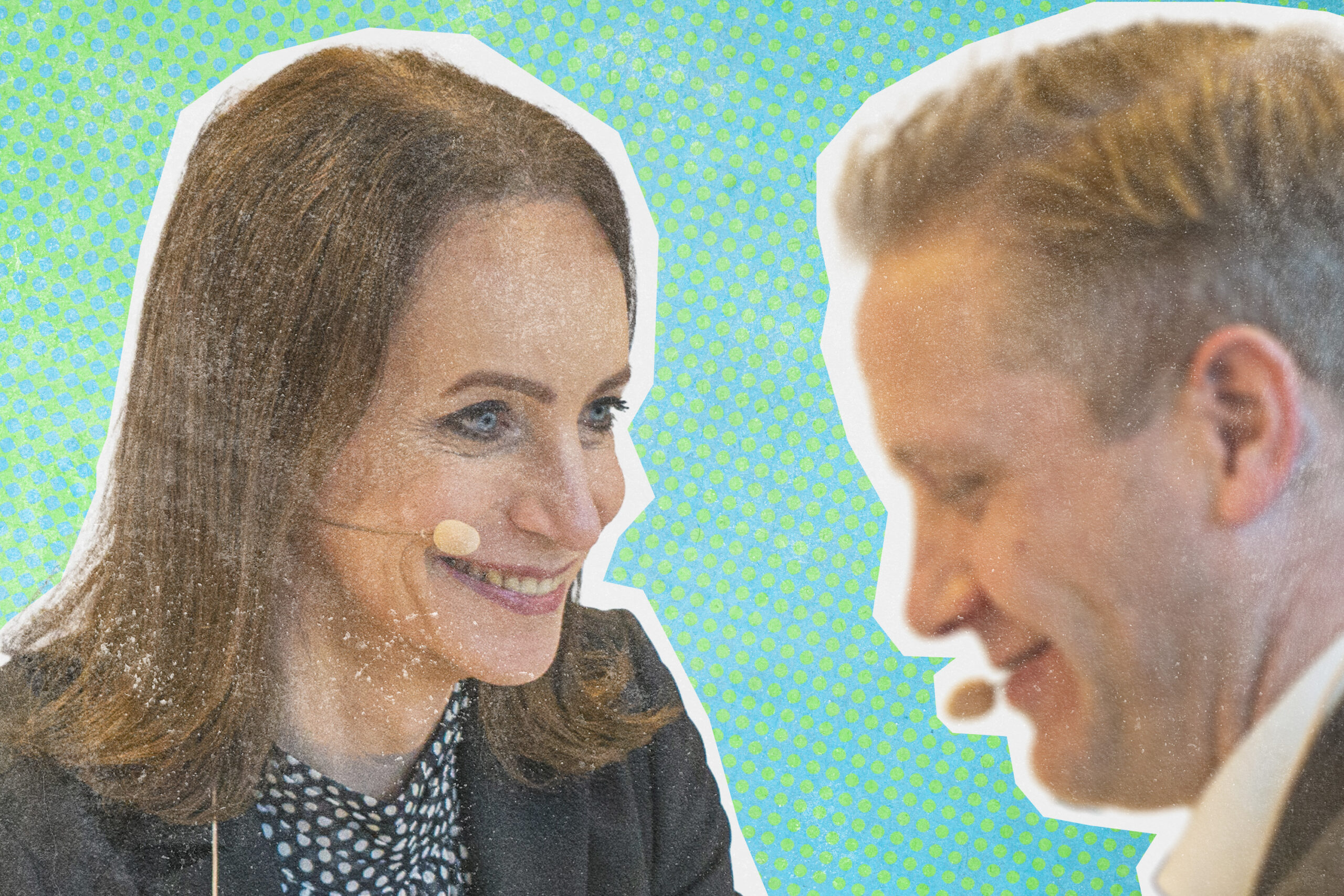Get the newest insights
Let us know your interests and get the most relevant reports, articles and events delivered straight to your inbox!
Sign up here
When Caroline Farberger came out as the world’s first transgender CEO, she was blessed with an unexpected first-hand experience of the executive culture she had participated in as a man – seen from the point of view of her female colleagues.

In 2018, Caroline Farberger came out as the world’s first transgender CEO. Her experience has provided her with a unique insight into the differences between male and female executives.
Farberger explains the lack of gender equality among executives with a strong culture of impenetrable networks among male leaders from which female leaders are often excluded.
According to Farberger, the solution does not lie in strengthening the corresponding female networks, but in creating joint and diverse networks for all.
”Everything seemed perfect: I had a good job, a good salary, a family, three kids, a nice house and a nice car. I was the Master of Ceremonies in the Masonic order and kind of had it all – but I was unhappy.”
This is how Caroline Farberger – chairperson of the venture company Wellstreet and former CEO of IKA Forsäkring – describes the first 50 years of her life.
In 2018, she made a decision which quickly made headlines: the Swedish CEO informed her employees that she intended to live the rest of her life as a woman.
”I discovered that life is too short to live it as somebody else than myself,” she tells Christian Jensby, CEO of Deloitte Denmark, in the latest episode of the Deloitte podcast “BizzPod”.
“In a way, it was a big experiment, because nobody had done anything like it before. Would society accept it? Would corporate life? Or were I to be labelled some kind of odd outcast?”
What happened? How did your colleagues react? Christian Jensby inquires.
”With one hundred per cent respect and support. I only received positive reactions. And the word I heard the most was ‘courage’.”
As a female leader, something happened to Caroline Farberger that she had not expected. She was blessed with a first-hand experience of the executive culture she had participated in as a man – but seen from the point of view of her female colleagues.
”The women around me included me in their ‘female community’ and revealed things to me that they had never told me before,” Farberger explains and lists, among other things, tough language, inappropriate jokes, not being heard at meetings and one situation involving sexual harassment that had taken place in her surroundings without her knowing.
”I asked them: Why did you not come to me earlier? They said, ‘Do you not see it? You lived as a man then. You would not have understood, you would have seen me as someone making a complaint, somebody weak’.”
“Then I realised how privileged I had been as a man. I could be myself every day without worrying how other people categorised or judged me.”
I realised that the room of acceptable behaviour and appearance is much smaller for a woman than it had been for me as a man. But most of all, the big difference was all the strong networks I had been part of as a man, networks in which I had been supported by other men and where I, in turn, had supported other men.
Caroline Farberger
So, what is the solution, Christian Jensby wants to know. Do we need to weaken the male networks or strengthen the corresponding female networks?
According to Caroline Farberger, neither would work.
”The solution is that we all need to have one common network. We do not want a silo mentality. Among the tools in the toolbox, most companies start by establishing female networks, creating female sponsorships, mentors etc. But that is not enough, because the exclusive male privileges still exist.”
”We need to work with real inclusion. Looking back at my 50 years as a man, I realise that my network has only ever consisted of white, heterosexual males – and I never even gave it a thought.”
”I usually compare it to a football match. We play by the same rules, but men play on home ground and women play on away ground. Together, we must create a common home ground for us all to play on the same conditions.”
The conversation (in Danish) between Caroline Farberger and Christian Jensby is available on Apple Podcasts, Spotify or on the podcast app of your choice.
Let us know your interests and get the most relevant reports, articles and events delivered straight to your inbox!
Sign up here